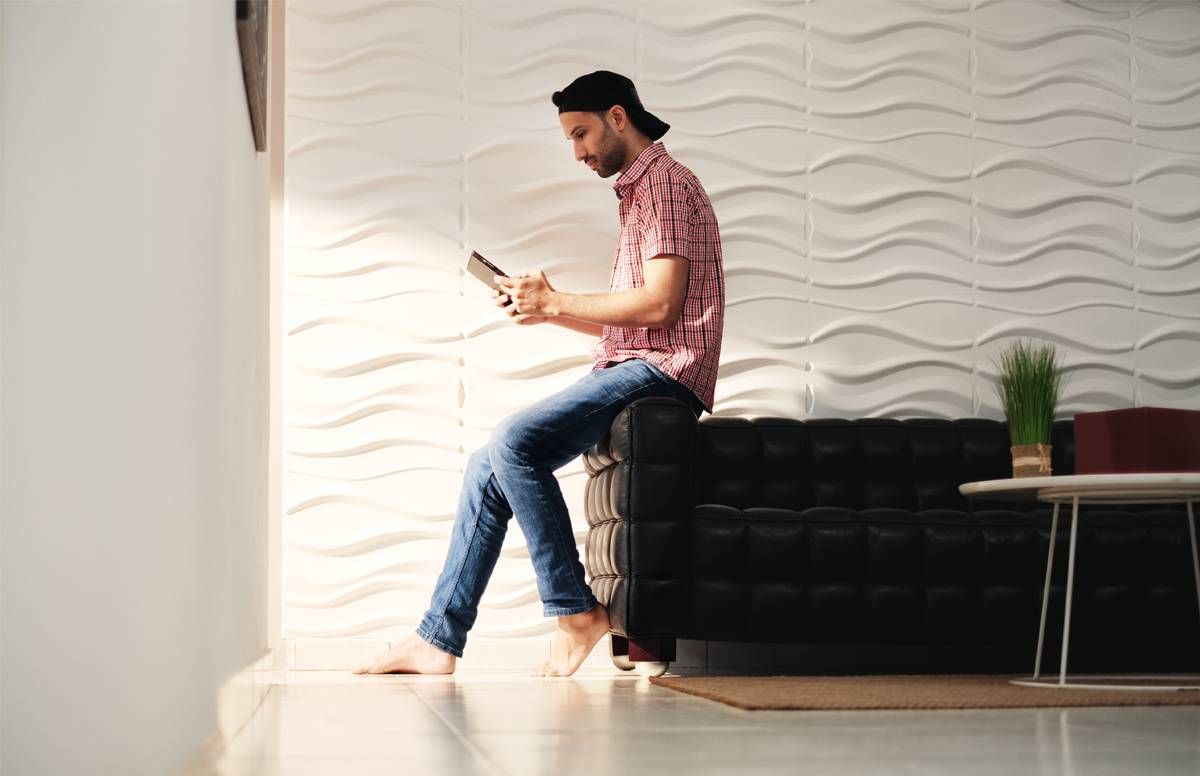During Quarantine, Our Nest Is Still Empty
As her millennial sons shelter in place across the country, a mom tries to manage
For weeks, my husband and I heard of colleges asking students to go home. We watched the countrywide flurry of activity as young adults returned to the nest, and nodded in sympathetic understanding at the shock experienced by parents as their children came back months earlier than anticipated due to the coronavirus pandemic — if they’d even planned to return at all.

We read about the students’ fear, which they buried in frustration at having to be back under their parents’ roofs.
But in our house, it is still just the two of us.
At 22 and 19, my sons are more than competent cooks. They know how to wash dishes and usually hang up their towels after showers. They’re careful about staying hydrated and understand the importance of brushing their teeth. They respond to texts — one quickly, one eventually — and understand why their choosing to stay at their closed colleges in Washington state and California might be unnerving to me and their father, here in Vermont.
Their preference to stay at school is not an act of rebellion.
“Is it weird not having your kids home during a nationwide emergency?” asks a friend, whose own sons have returned home. She has commented more than once how difficult it is to keep food in the house now that her sons are raiding the kitchen around the clock.
Our Commitment to Covering the Coronavirus
We are committed to reliable reporting on the risks of the coronavirus and steps you can take to benefit you, your loved ones and others in your community. Read Next Avenue's Coronavirus Coverage.
“Yes,” I say. “Sort of. I don’t know.” They are all true. I look at the maps showing where the cases are most numerous across the United States. Two substantial red dots hover over Washington and California, but the biggest is over New York, just across Lake Champlain from us. Is it safer here? It’s hard to think so, looking at that growing blood-red blot.
A Sign of Independence
My sons are not the quintessential spring breakers seen in video clips on crowded Florida beaches opining that coronavirus is nothing to worry about. Peter scuttled his plans to spend his break in the unpopulated deserts of Nevada and Arizona, while Sam scrapped his own to camp in Joshua Tree National Park in California.
Their preference to stay at school is not an act of rebellion. Instead, it feels like a sign of independence. That doesn’t mean we don’t worry.
In Washington, Peter lives off campus, in a house with four roommates. A senior and a farmer-in-training, he could survive for quite some time on the vegetables and other foods he preserved in the fall.
He assured us well before it was mandatory that he and his roommates agreed to self-isolate in their little house. His staying at school feels fairly logical, and I try to put out of my mind memories of the end of his sophomore year, when we knew he was sick in his dorm bed, but he was too ill to answer texts or calls. I finally tracked him down through campus security and the school’s health center.
In southern California, Sam is in university-sponsored off-campus housing, a two-bedroom apartment he would be sharing with three roommates if they hadn’t skedaddled before spring break. Sam admits he is enjoying having the space to himself, playing his guitar whenever he wants, and assures us he has Lysol wipes and access to food, with six groceries and mom-and-pop stores within a quarter-mile radius of his apartment.
He’s a journalism major, so he’s on top of the news, and says he already had sufficient stocks of toilet paper. Besides, he chuckles, the two roommates who use it so unstintingly have left.
“What if you get sick?” I ask, imagining him in a fetal curl on his bed, alternately pushing the covers off and pulling them back on in a feverish delirium, no one around to bring him a cool cloth or a can of ginger ale. We review the symptoms, which he already knows. The health center is close enough that he could drag himself to it if need be, he says.
We're Figuring it Out
Both schools have been thorough in keeping parents in the loop, and they let us know when and how they have made each decision — about classes going online, about students leaving, about asking them not to return if they left campus for spring break, about cases of COVID-19 in the area — and we, 3,000 miles away, are grateful.
They arrive almost daily, these emails; on days we don’t hear anything, I feel myself relax a little, adjusting to the new norm.
But then another missive comes and, although I appreciate the update, I feel myself tensing all over again. Students who can, really should go home, this one says. We phone Sam, and I start looking at flights the next day.
"If I came home, it would only be to make you two feel better," he says, finally.
He talks about time zone challenges with his courses if he were to return to Vermont, of not knowing how he could so quickly pack up all his belongings and store them for the next six months. He insists he’s fine where he is, agrees to regular check-ins with us, assures us if anything happens, he’ll reach out to extended family nearby.
“If I came home, it would only be to make you two feel better,” he says, finally.
He’s right: it would make us feel better. Yet he’d have to be quarantined in his room here, and then what? The only advantage is we’d be there for him if he got sick. But what if that only happened because he picked up the virus during his travels home?
Sheltering in place is not the worst idea, we tell ourselves, sometimes convincingly.
So instead, we tried to get together by FaceTime, all four of us. Our operating systems weren’t updated enough, and the only way we could make it work was to hold up my laptop with Peter on it to my husband’s with Sam there. They laughed, and we saw them smiling and looking healthy — no doubt sharing an eyeroll at our technological incompetence — before the interference between the two laptops froze the screens and created ear-splitting feedback.
How about Zoom? someone suggested.
We’ll figure this out, we said.


